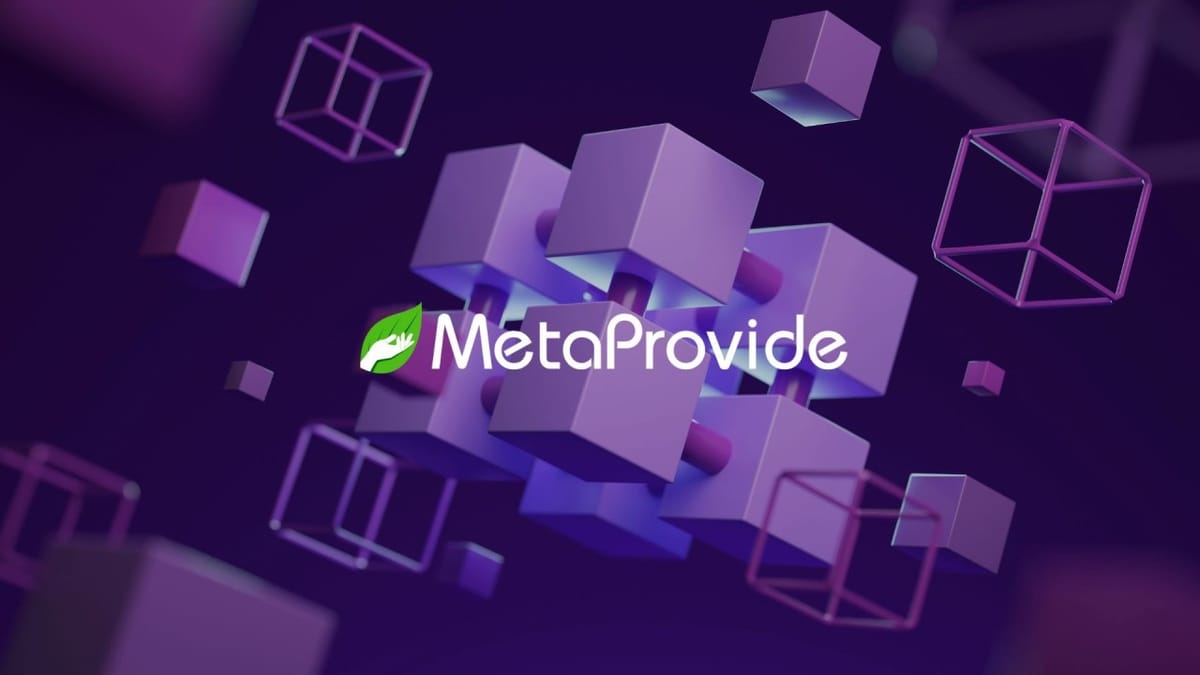Are Decentralised Data Solutions Really That Complicated?
The advantages of using blockchain technology for ultimate data privacy can come with the disadvantages of immense technical complexity. Let's explore the intricacies of decentralised data solutions and their potential benefits.

The advantages of using blockchain technology for ultimate data privacy can come with the disadvantages of immense technical complexity. Let's explore the intricacies of decentralised data solutions and their potential benefits.
Navigating the Complexity of Web3 Decentralised Data Solutions
Instead of storing sensitive data on a single or a few servers vulnerable to hacks, decentralised networks distribute this data, making it significantly harder for malicious actors to compromise the system. Moreover, users retain ownership of their data, which is securely stored on the blockchain or decentralised storage systems.
In today's digital age, data security is paramount. Decentralised solutions offer a promising alternative to traditional centralised systems. Web3 technologies, leveraging blockchain and decentralised networks, empower users with greater control over their data. However, the journey to fully embrace decentralised data solutions is complex and filled with challenges.
The Promise of Decentralisation
Decentralisation shifts power from centralised authorities to individual users. In a decentralised network, data is distributed across multiple nodes, eliminating the single point of failure that plagues centralised systems. This architecture enhances security, reduces the risk of data breaches, and gives users greater control over their information.
Instead of storing sensitive data on a single or a few servers vulnerable to hacks, decentralised networks distribute this data, making it significantly harder for malicious actors to compromise the system. Moreover, users retain ownership of their data, which is securely stored on the blockchain or decentralised storage systems.
The Complexity of Implementation
While the benefits of decentralised data solutions are compelling, implementing them is not without challenges. Here are some key complexities involved:
Technical Barriers
Deploying decentralised solutions requires a deep understanding of blockchain technology, smart contracts, and distributed networks. The learning curve can be steep, especially for organisations accustomed to traditional centralised systems. Additionally, integrating these new technologies with existing infrastructure can be technically demanding.
Performance and Scalability
Decentralised networks often face performance and scalability issues. Processing transactions and data across a distributed network can be slower compared to centralised systems. Ensuring the network can handle many transactions without compromising speed and efficiency remains a significant challenge.
User Experience
One of the most significant barriers to the widespread adoption of Web3 technologies is user experience. Decentralised applications (dApps) can be less intuitive and more difficult to use than their centralised counterparts. Users must manage their own cryptographic keys and navigate complex interfaces, which can be daunting for those unfamiliar with the technology.
Regulatory and Compliance Concerns
Operating within regulatory frameworks is another layer of complexity. Decentralised systems often operate across multiple jurisdictions, each with its own set of rules and regulations. Ensuring compliance with data protection laws, such as GDPR, can be challenging. Organisations must navigate this regulatory landscape carefully to avoid legal pitfalls.
Introducing Hejbit by MetaProvide: Decentralised File Storage for Nextcloud Users
MetaProvide introduces Hejbit, a groundbreaking solution, combining the familiar Nextcloud interface with the robust security of the Swarm decentralised data network. Hejbit empowers organisations to store, share, collaborate, and edit files with the decentralised reliability of Swarm, offering a secure alternative to traditional cloud storage solutions.
With Hejbit, users benefit from:
- Enhanced Data Sovereignty: By decentralising storage, Hejbit ensures users maintain complete ownership and control over their data, mitigating the risks of centralised storage solutions. Data is protected from unauthorised access, breaches, and third-party control, allowing for greater privacy and resilience.
- Familiar User Experience: Built on the Nextcloud platform, Hejbit integrates seamlessly with the existing Nextcloud interface, providing a user-friendly entry point to decentralised storage without disrupting workflow.
MetaProvide, a long-time contributor to the Nextcloud ecosystem, designed Hejbit to address the growing concerns around data sovereignty and cloud storage vulnerabilities. By leveraging Swarm's highly distributed network, the plugin minimises the risks associated with self-hosted server loss, system failure, or third-party shutdowns, making data truly unstoppable.
For organisations that are not yet Nextcloud users, MetaProvide can guide you to third-party Nextcloud providers, enabling you to immediately benefit from Hejbit's decentralised solution and experience secure, sovereign storage without compromise.